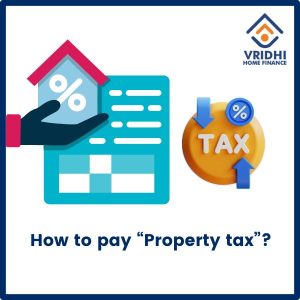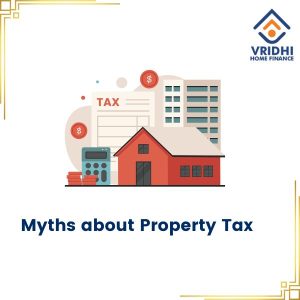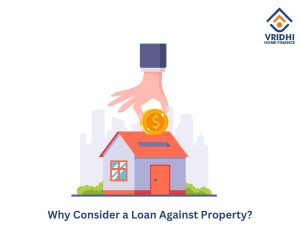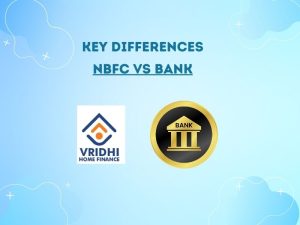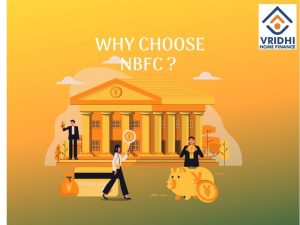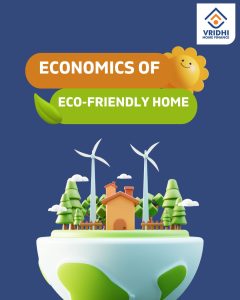How to Get a Home Loan Without ITR?
Getting a home loan is a significant step toward owning your dream house. However, not everyone has the necessary Income Tax Return (ITR) documents, which are typically required by lenders to assess your financial stability. Fortunately, it is still possible to secure a home loan without ITR, especially if you have alternative income proofs or a strong credit profile. This guide will explore how to get a home loan without ITR and help you understand the options available for making your dream home a reality.
Can You Get a Home Loan Without ITR?
Yes, obtaining a home loan without ITR is possible, though it may require additional effort to prove your financial credibility. Lenders usually rely on ITRs to assess income stability, but they also consider other factors such as your employment, bank statements, and property value. With the right documentation and approach, many housing finance companies, including Vridhi Home Finance, cater to applicants without ITR.
Read More : How to close your Home Loan?

Alternatives to ITR for Home Loan Approval
Bank Statements and Income Proofs
Lenders often accept detailed bank statements as proof of consistent income. For instance, if you are self-employed or earn income through alternate means, providing six months to one year of bank statements can demonstrate your financial capacity.
Salary Slips or Employer Certificates
For salaried individuals, salary slips or an employer’s certificate can serve as proof of regular income. These documents help lenders verify your ability to repay the loan, making ITR less critical in such cases.
Business Financials
If you are a small business owner or entrepreneur without ITR, audited profit and loss statements, balance sheets, or GST returns can establish your business’s financial health. These documents assure lenders of your repayment capacity.
Alternate Income Sources
For those with rental income, agricultural income, or other recurring earnings, providing documentary evidence of these sources can strengthen your loan application.
Steps to Get a Home Loan Without ITR
Follow these practical steps to increase your chances of approval:
1. Choose the Right Lender
Not all lenders require ITR for home loan approval. Some housing finance companies, such as Vridhi Home Finance, specialize in offering loans to individuals without formal income documentation.
Look for Non-Banking Financial Companies (NBFCs)
NBFCs are often more flexible than traditional banks. They cater to self-employed individuals, small business owners, and applicants without standard financial records like ITR.
2. Gather Alternative Documents
To compensate for the lack of ITR, prepare comprehensive documentation of your finances. This includes:
- Recent bank statements
- Salary slips or employer certificates
- Proof of business income (if applicable)
- Documents proving alternate income sources
Highlight Creditworthiness
If you have a strong credit score, highlight it in your application. A good credit score increases your credibility as a borrower, even without ITR.
3. Apply for a Lower Loan Amount
Lenders are more likely to approve smaller loan amounts for applicants without ITR. Opt for a loan amount that aligns with your income and repayment capacity to enhance approval chances.
Consider a Higher Down Payment
Offering a higher down payment reduces the loan-to-value (LTV) ratio, lowering the lender’s risk. This can significantly improve your chances of approval.
4. Co-Applicant or Guarantor
Adding a co-applicant with documented income or a guarantor with a strong financial profile can bolster your application. This reassures lenders of loan repayment.
Benefit of Spouse or Family Member as Co-Applicant
Including your spouse or a family member with proper income documentation increases the total income eligibility, making approval easier.
Read More : Buying vs Renting a home? Which is more Preferable ?

Challenges of Getting a Home Loan Without ITR
While it is possible to get a home loan without ITR, some challenges may arise:
Higher Interest Rates
Lenders may impose slightly higher interest rates on loans without ITR due to perceived risk. Comparing lenders and negotiating can help secure better terms.
Limited Loan Amount
Without ITR, lenders may restrict the loan amount to minimize their risk. This is why it’s crucial to align your loan request with your income proof.
Additional Documentation
You may need to provide additional documents or undergo a more thorough verification process, which can prolong the loan approval timeline.
Benefits of Home Loans Without ITR
Despite the challenges, opting for a home loan without ITR offers several advantages:
- Accessibility: Makes home loans available to self-employed or informal earners.
- Customized Solutions: Many lenders offer tailored products for applicants without standard documentation.
- Opportunity for Ownership: Enables individuals without ITR to fulfill their dream of owning a home.
Conclusion
Securing a home loan without ITR may seem challenging, but with the right approach, it is entirely achievable. By providing alternative income proofs, choosing the right lender, and preparing a solid application, you can successfully navigate the process. Remember to research your options and understand the requirements of different lenders to find the best fit for your needs.
Vridhi Home Finance offers a range of home loan solutions tailored for individuals without ITR. Whether you’re buying, building, or renovating, we provide flexible options to meet your financial needs. Let us help you turn your dream of homeownership into reality today!

















